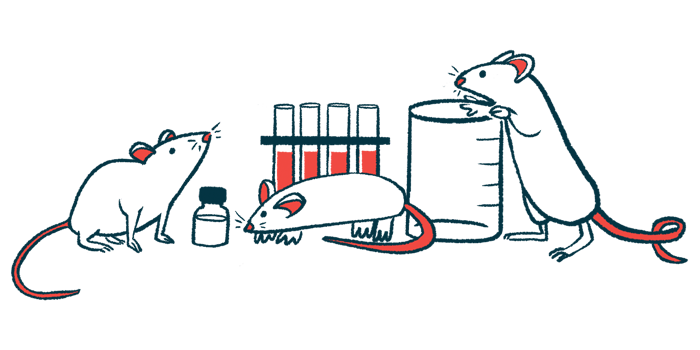Diabetes med metformin studied as Cushing’s treatment
Preclinical research suggests that metformin can reduce disease markers

Metformin, a medicine used mostly to treat type 2 diabetes, eased the signs of Cushing’s disease in cells and in a mouse model, a study showed.
“These findings suggest metformin as a potential drug for the treatment of Cushing’s disease,” researchers wrote in the study, “Metformin inhibits cell proliferation and ACTH secretion in AtT20 cells via regulating the MAPK pathway,” published in the journal Molecular and Cellular Endocrinology.
Most cases of Cushing’s disease are caused by benign tumors in the brain’s pituitary gland, which lead to the overproduction of a hormone called adrenocorticotropic hormone (ACTH). Too much ACTH triggers the adrenal glands, located atop the kidneys, to overproduce the hormone cortisol, resulting in a wide range of Cushing’s symptoms.
Metformin is an oral medication used to treat type 2 diabetes, a condition in which the body cannot make enough insulin; insulin is a hormone that helps control the amount of blood sugar in the body. Previous studies have suggested that metformin can limit the growth of pituitary tumors and reduce ACTH, suggesting potential as a Cushing’s disease treatment.
In this study, researchers in China conducted a detailed analysis of the effects of metformin on lab-grown pituitary tumor cells of mice, and in a mouse model.
ACTH-producing mouse pituitary tumor cells, called AtT20, were treated first with increasing doses of metformin and cell viability (the number of healthy cells) was measured at specific time points.
Results confirmed that metformin significantly suppressed the growth of these cells over time in a dose-dependent manner. Treatment also reduced the production of ACTH, particularly at higher doses.
Significant reductions in gene activity
The team then evaluated the impact of metformin on gene activity. Although the activity of a gene that carries instructions for making an ACTH precursor called POMC was unaffected, the levels of POMC protein were reduced significantly with treatment.
Building on the gene activity results, researchers then investigated metformin’s effects on signaling pathways associated with the different patterns of gene activity. Results revealed that metformin significantly inhibited markers of the cancer-associated MAPK pathway, including ERK1/2 and JNK.
They observed that combining metformin with an ERK1/2 blocker, called Ulixertinib, significantly decreased cell growth, POMC, and ACTH production — better than metformin or Ulixertinib alone.
Researchers then examined the effects of metformin on a mouse model that they created by injecting pituitary tumor cells into the animals. Two weeks later, mice received abdominal injections of metformin (100 mg/kg), or a saline as a control, three times a week, for three weeks.
Consistent with the cell culture results, tumors in metformin-treated mice were significantly smaller than those from control mice. The production of ACTH and the ERK1/2 marker also were significantly suppressed with metformin treatment.
“Our study demonstrated that metformin suppressed cell proliferation and decreased ACTH secretion in AtT20 cells via the MAPK pathway,” the researchers wrote. “Our results revealed that metformin is a potential anti-tumor drug for the therapy of corticotroph [pituitary neuroendocrine tumors], which deserves further study.”







